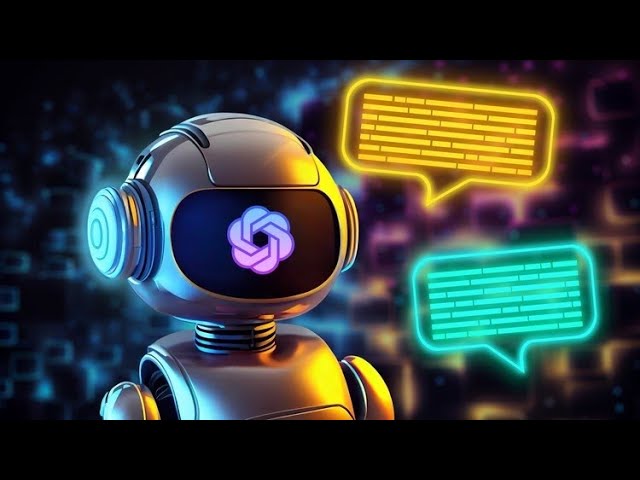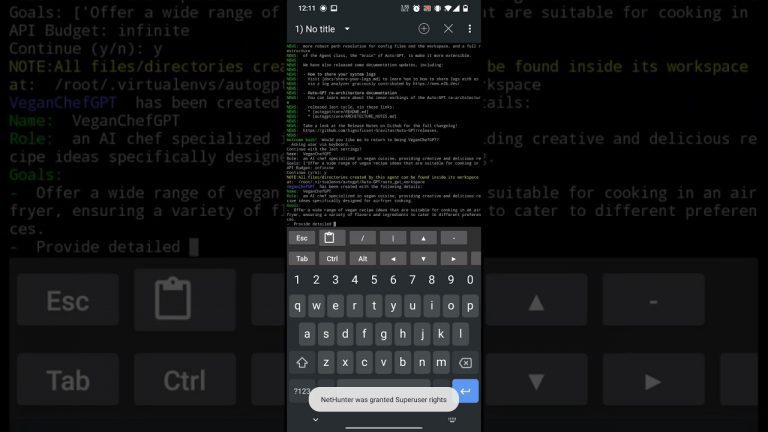6 AI Tools I Use to Boost My Productivity
“Check out Notion AI by signing up to Notion. ChatGPT and other AI tools have been taking over the internet in the last few months, and I’ve been integrating them into my workflow to boost my productivity as much as possible. So in this video I go”
The Video
In the presentation, he discussed the concept of emotional intelligence (EI) and its importance in personal and professional success. He defined emotional intelligence as the ability to identify and manage one’s own emotions, as well as understand and influence the emotions of others.
He explained that there are four components of EI: self-awareness, self-management, social awareness, and relationship management. Self-awareness involves recognizing and understanding one’s own emotions, while self-management involves regulating those emotions and avoiding impulsive actions. Social awareness is the ability to empathize with others and understand their emotions, while relationship management involves using that understanding to effectively communicate and build relationships.
He emphasized that while some people may have a natural inclination towards EI, it is a skill that can be developed and improved with practice. He offered tips for improving each of the four components of EI, such as journaling to increase self-awareness and practicing active listening to improve social awareness.
He also discussed the benefits of EI in various areas of life, including improved relationships, better decision-making, and increased job performance. He cited research indicating that individuals with high levels of EI tend to be more successful in their personal and professional lives.
Overall, the presenter emphasized the importance of developing emotional intelligence, and offered practical tips for doing so.
Key Points
- AI tools have been exploding onto the market and are changing the world of work and productivity.
- ChatGPT is an AI-powered chatbot that can be used for idea generation and research.
- Notion AI is a tool that can be used for brainstorming ideas and creating outlines for videos or articles.
- Speechify is an AI text-to-speech enabled software that can help with reading and productivity.
- Lex is a writing tool that can help improve writing style and generate new ideas.
- Grain and Otter are AI transcription tools that can be used to record and transcribe Zoom calls, podcasts, and audio books.
- The guest speaker is a scientist who studies the brain and how it processes information.
- The speaker discusses the concept of consciousness, which is difficult to define and study because it is subjective and individual.
- The speaker also discusses the idea of free will, which is the ability to make choices without being determined by prior events or causes.
- The guest speaker believes that free will exists, but it is limited by our biology and environment.
- The speaker also discusses the brain’s ability to process information unconsciously and how this can affect our behavior and decision-making.
- Finally, the guest speaker talks about the importance of studying the brain and consciousness in order to better understand ourselves and our place in the world.
FAQ
Q: What is GPT-3.5? A: GPT-3.5 is a large language model developed by OpenAI, which is an improved version of the popular GPT-3 language model. It is trained on a massive amount of text data to generate human-like responses to a variety of natural language processing tasks.
Q: What are some of the applications of GPT-3.5? A: GPT-3.5 can be used in a wide range of applications, such as language translation, chatbots, content creation, text classification, and more. It can also be used to improve search engine results and to automate tasks like customer support and data analysis.
Q: How does GPT-3.5 differ from GPT-3? A: GPT-3.5 is an improved version of GPT-3 with a larger number of parameters and improved training methods. It is designed to address some of the limitations of GPT-3, such as its tendency to produce biased or inaccurate responses.
Q: What are the benefits of using GPT-3.5? A: The benefits of using GPT-3.5 include its ability to generate more accurate and human-like responses, its ability to understand and interpret complex language, and its ability to automate a variety of language-based tasks. It can also improve efficiency and productivity in many industries.
Q: Are there any potential drawbacks to using GPT-3.5? A: Some potential drawbacks of using GPT-3.5 include the possibility of generating biased or inaccurate responses, the risk of misuse or abuse of the technology, and the potential for job displacement in certain industries. It is important to use the technology responsibly and to consider its potential impact on society.
Q: How can I learn more about GPT-3.5 and its applications? A: There are many resources available online for learning about GPT-3.5 and its applications, including research papers, tutorials, and online courses. You can also explore the OpenAI website and blog to stay up-to-date on the latest developments in the field.
Q. How can I improve my language skills? A. You can improve your language skills by practicing consistently, engaging in conversations with native speakers, reading books or articles in the language, and using language learning apps or programs.
Q. What are some benefits of learning a new language? A. Learning a new language can enhance cognitive abilities, improve job prospects, facilitate travel and cultural understanding, and boost personal development and self-confidence.
Q. How do I choose which language to learn? A. You can choose a language to learn based on personal interests, career goals, travel plans, or the language’s usefulness in your local community.
Q. Is it possible to become fluent in a language without living in a country where it is spoken? A. Yes, it is possible to become fluent in a language without living in a country where it is spoken. Consistent practice and exposure to the language through media, conversation partners, and other resources can help you achieve fluency.
Q. How long does it take to learn a new language? A. The time it takes to learn a new language varies based on individual factors such as prior language learning experience, language difficulty, and level of immersion. However, it generally takes several months to several years to become proficient in a new language.
Q. What are some common mistakes to avoid when learning a new language? A. Common mistakes to avoid when learning a new language include relying too heavily on translation, neglecting speaking and listening practice, and not immersing yourself enough in the language and culture.
- Jasper: Your AI Copywriting Assistant
- WordAI: AI Text Rewriter
- Article Forge: High quality, AI content generator
- Copymatic: AI Copywriter & Content Writer
- Copysmith: AI Content Creation for Enterprise & eCommerce
- Writesonic: Generate & Publish, in a Click
- AIWriter: The AI Text Generator built to be trusted.
- Ink: AI Content Marketing
- Quillbot: Paraphrasing Tool
- Frase: Best SEO Content Optimization Tool & AI Writer
Other products and addons: OriginalityAI, SurferSEO, SemRush, Mangools Tools, Adzis, PictoryAI, RankerX, ContentBot
#AItools, #productivityhacks, #digitalassistant, #automation, #timemanagement, #artificialintelligence, #productivityboost, #worksmarter, #businessautomation, #efficiencytips





